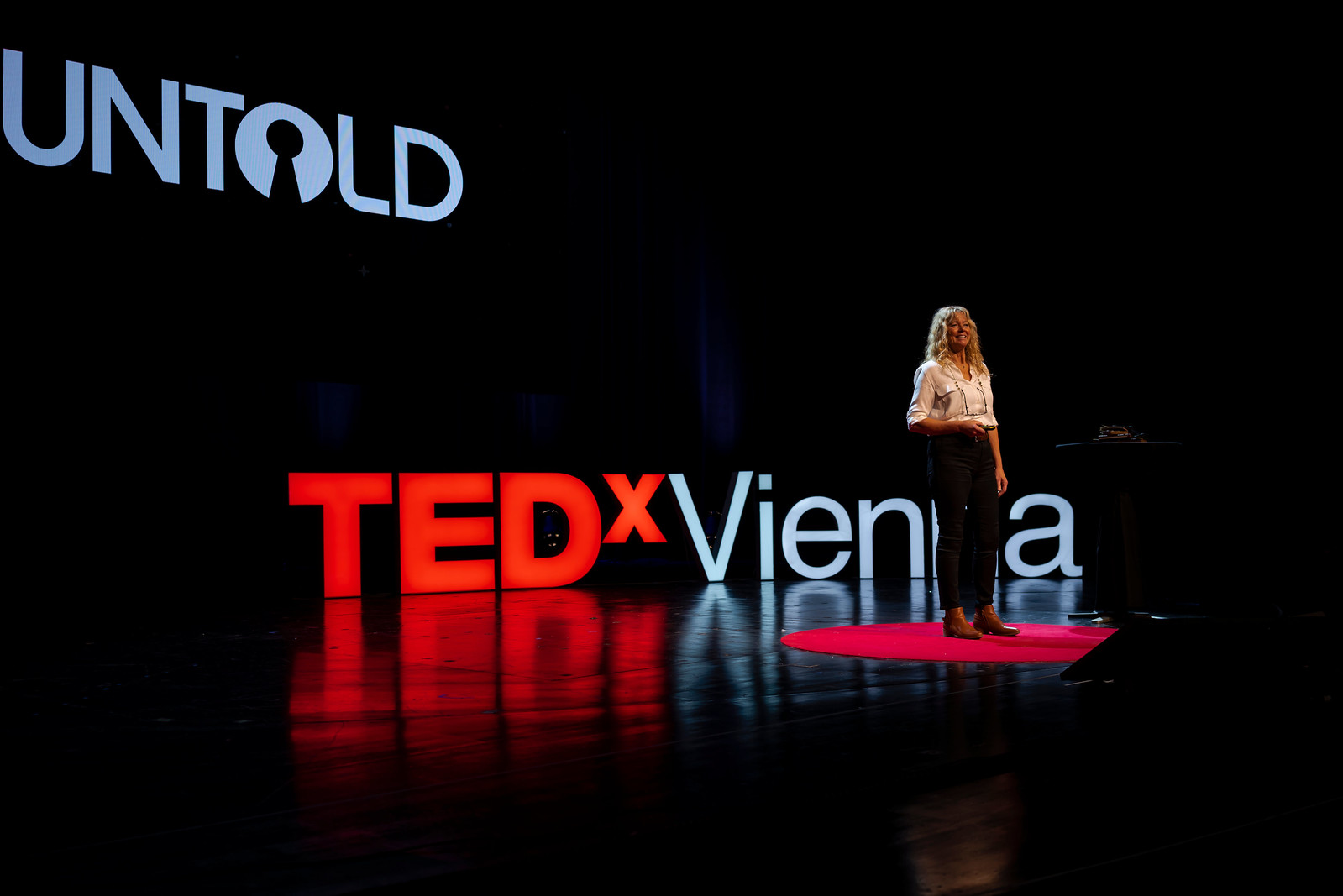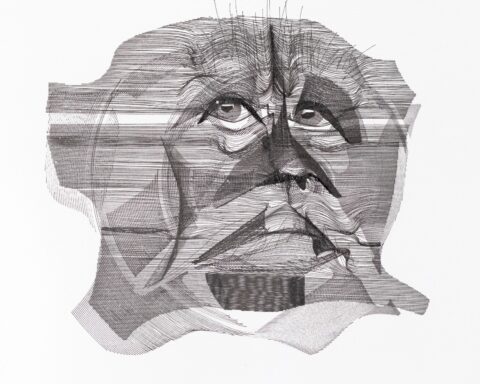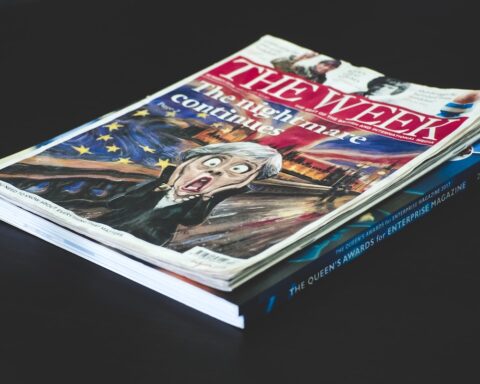From the first day we came into the world, there is one thing that is certain for the rest of our lives: Like all beings that have evolved, we will also be part of the history of this century. History is that inevitable little bug that enters through our window and settles into our lives. This happens gradually orally, as our parents tell us fantastic stories, and then, expands into the home library with endless books on a wide variety of subjects.
History is fundamental to human development, not only to impart cultural knowledge but also to broaden our perspectives and find answers to many questions. It not only allows us to learn a little more about the outside world by detailing the progress of technology and people, religions and politics, and the emergence of society as we know it today, it also helps us understand our inner world as individuals by learning about our roots and ancestors and appreciating the heritage we have inherited from them.
A few months ago, the TedxVienna Untold conference took place, hundreds of people had the joy of discovering an uncommon job of keeping secrets, of knowing about the most recondite stories, appreciating them, respecting them, and keeping them forever. A few months ago, hundreds of people got to know Sally MacNamara. An extraordinary woman, full of vitality and a big heart, Sally MacNamara, has been collecting diaries for over 30 years, diaries of completely unknown people, who have already died and left their history impregnated in the pages of their diaries.
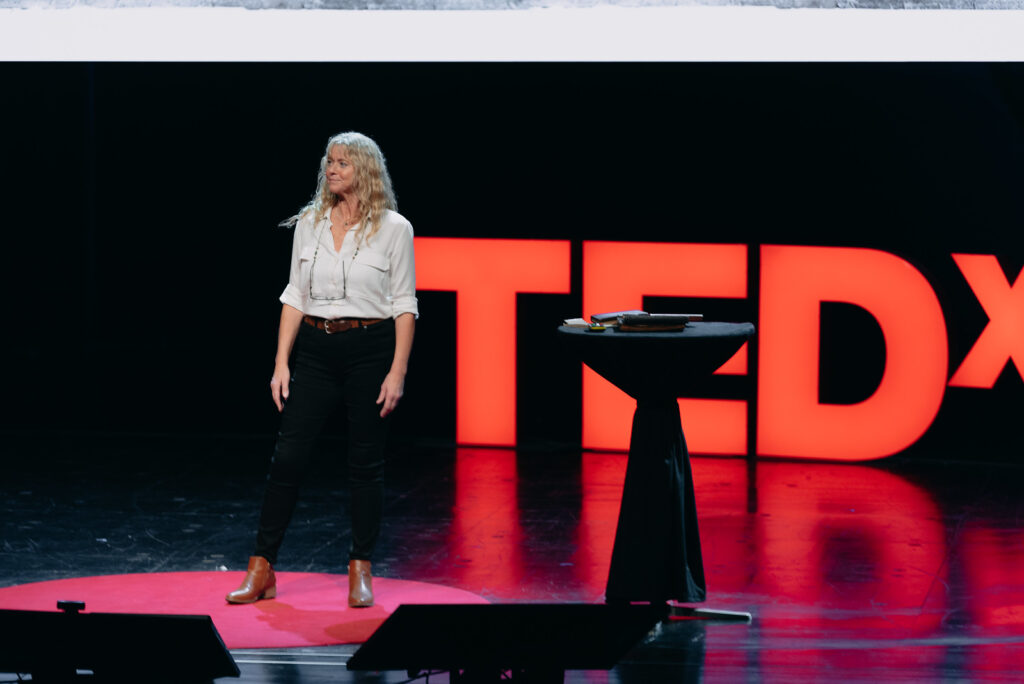
Today, Sally has read more than 10,000 of these diaries from different times, full of joy, fun, suffering, and tragedy. In her talk at the conference, Sally took us in a time machine through some of the stories she has read in the diaries from 1792 to 1927 to 1944 to 2008 to the present. She inspired us to free ourselves from our inner pain through writing, bringing all our feelings to paper.
During our interview, we got to know more about the woman that reunites families through diaries and has read thousands of stories. We talked in detail about this great and unusual work, how it has influenced Sally and her family.
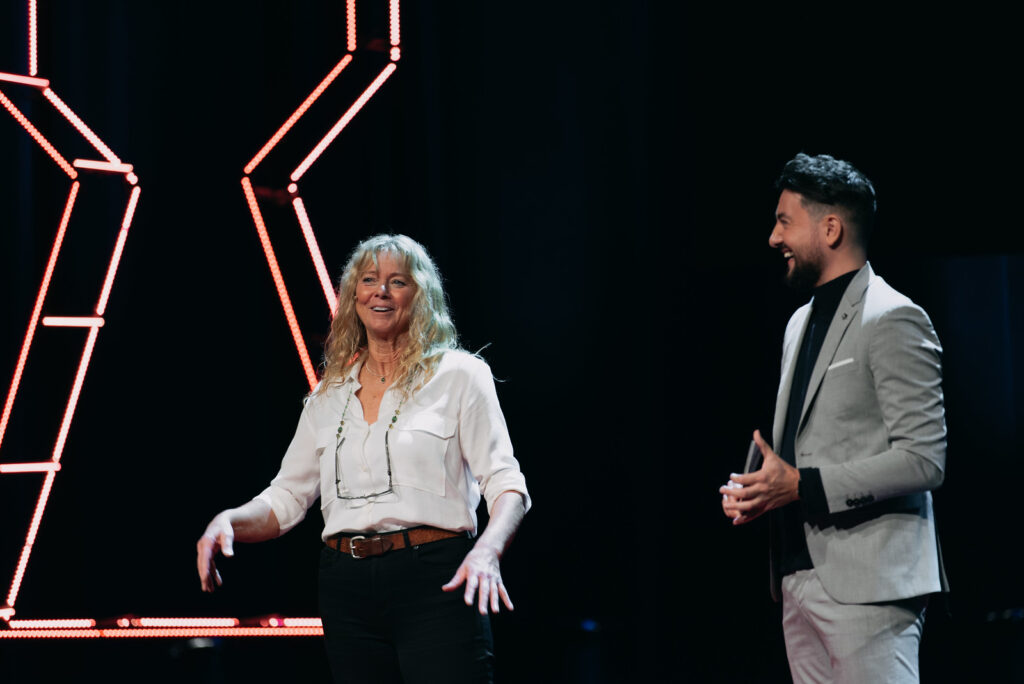
How did you feel being on the stage?
Actually, after about five minutes, I thought ‘Okay, this is going to be okay’. You know, it was the first time I stepped out, Vlad spoke and I was like ‘Okay I can do this, I can do this.’ Christina has said something to me, she said:” The people that come and watch this, some of them have been here for eleven years the whole time”, she said: “These are people that just want to hear stories, they are not here to judge”. It made me feel like I am a storyteller and that made me feel comfortable, the audience also made me feel comfortable, looking at their faces made me feel comfortable. Then I realized it was about to happen.
Now that you have read through all those diaries, how do you process the joy and pain from so many people?
It helps because when my husband died I thought I was alone, that nobody has been this deep, I thought these are just terrible feelings, and felt alone but while reading the diaries, I noticed that emotions are timeless, those words were words I could have written and felt at that time. In those diaries, there is a lot of tragedy because back then, we didn’t have the kind of medicine that we now have, so there were many more deaths, things were so different back then, but I also read people who were coming out of it and made it through, like I have 10 years of someone’s diaries and I see how they’ve come through whatever tragedy they have been through and how they come to this wonderful point, then I do not feel alone, we are not alone, so it has helped me. However, I think one of the main things that this has done for me is, in the process, it has changed me in the sense that I have learned to see people differently, not to judge them at first, no matter what they’re doing, I do not know where they have been, but with the diaries, I can see the true person, the inner person, and so it has positively changed me.
“This journey changed my life in the most powerful way and all because of the handwritten word.”
Sally MacNamara
Why do you think people feel comfortable sending you their diaries? Why do you think they want you to read them?
I think one of the things that helped me out reading other people’s diaries is the respect that I have for people, there are diaries that I won’t mention as far as I want, I won’t share on the stage or share on my podcast, because they are just too personal and so I hope they see that I am not reading a diary just so I can expose it, so I can make money with it because I try to get them back to families, I try to get them to historical societies and so I try to show people that I respect them deeply and will never use their words to gain something that I shouldn’t, I want to preserve them and protect them so they are families together, I think that’s why I don’t keep diaries from people that are still alive, I try to stay away from that. Maybe they don’t want their children to have them, and they say: “But you take such good care of them”, but it is just that I think it is best for both of us, for them to keep their diaries and then maybe, later on, they can donate or something.
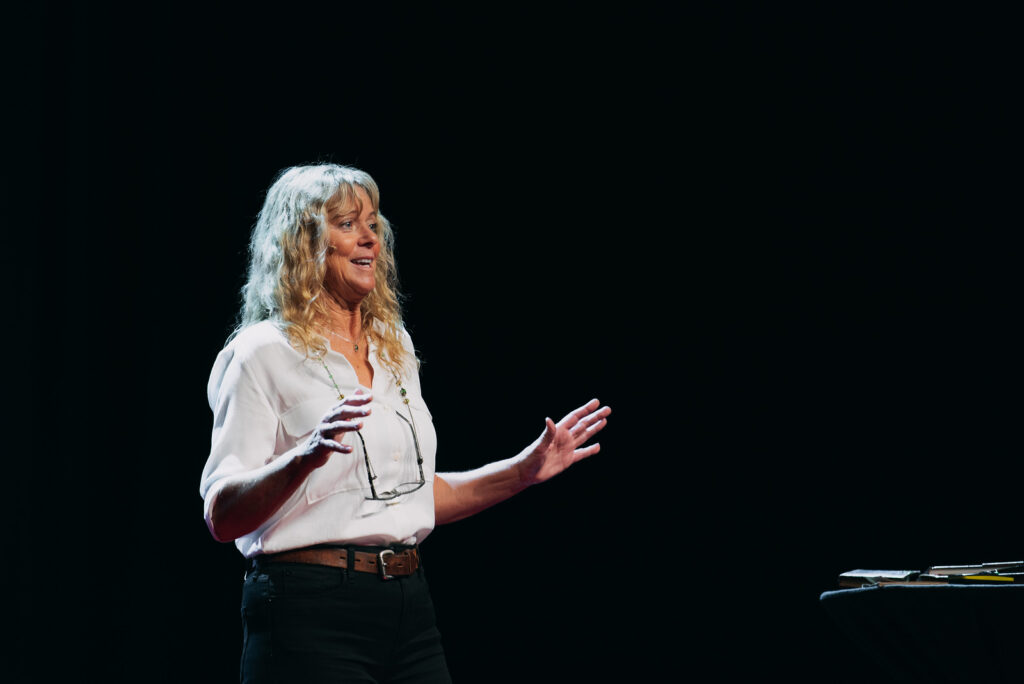
You said you have a Podcast, where can we find it and what is it about?
Yes, it is called diary discoveries, and it is on all the podcast venues. We just started, I think we got our twelve episodes and it’s been a way for me to share these diaries now, we read them, we read excerpts, we go visit towns where they are from. We just visited a ghost town, where a man lived hundred years earlier and we saw only three or four buildings left and I just started crying because I had the diary in my hands when I was in the same town that he was in, so we are podcasting about all that kind of stuff. Sharing people’s stories, they need to be heard, people’s stories must be heard.
“Self-contained grief is selfdestructive, so I began to write.”
Grace Darling Siebold
If self-grief can auto-destroy us, why do you think that handwriting is so powerful to liberate us?
I think I would speak mostly for myself when I keep a diary because I have this feeling, if I put my emotions into words in my diary, it’s releasing it. If I keep it inside of me, it obstructs me. I just feel if I can get all those feelings from me and put them in my diary it’s liberating because if we hold all that pain and grief inside of us we can get ill from that.
“There is a power in the handwritten word a power in your stories and when you write your stories down of the pages of a blank diary little do you know just how powerful those words can be years later”
Sally MacNamara
What do your children and grandchildren think about you collecting diaries?
I don’t know if they have read one of the diaries, I wouldn’t mind but I don’t think they have, I am extremely open with my children when it comes to keeping diaries, they are very used to it. I have been doing this for so long that they have been surrounded by it. There is a joke in our house that all the pictures on the wall are not our family, which they are not, they are pictures of the diary owners or something like that. I also call them all the time when I am in the middle of an exciting diary. My son just asked if my granddaughter could one day read all of my diaries, and I said yes, but she has to realize this is who grandma is, this is how grandma got to this point and grandma loves her very much and she loves me, so just take that all in as you are reading it, this is what made grandma, so that’s how my kids deal with it.
Do you speak any other language?
I do not, my son speaks Spanish but I don’t, I would love to but I don’t. It would be wonderful to read diaries from other countries and in different languages, because all out there are just strictly English for me and then mostly, I would say late 1700 on because if you get into earlier than that and the writing is different, so then it gets a little tougher, like the 1700 diary I shared in my talk, his writing is one of the hardest I’ve ever read and so, I had to transcribe those in great detail.
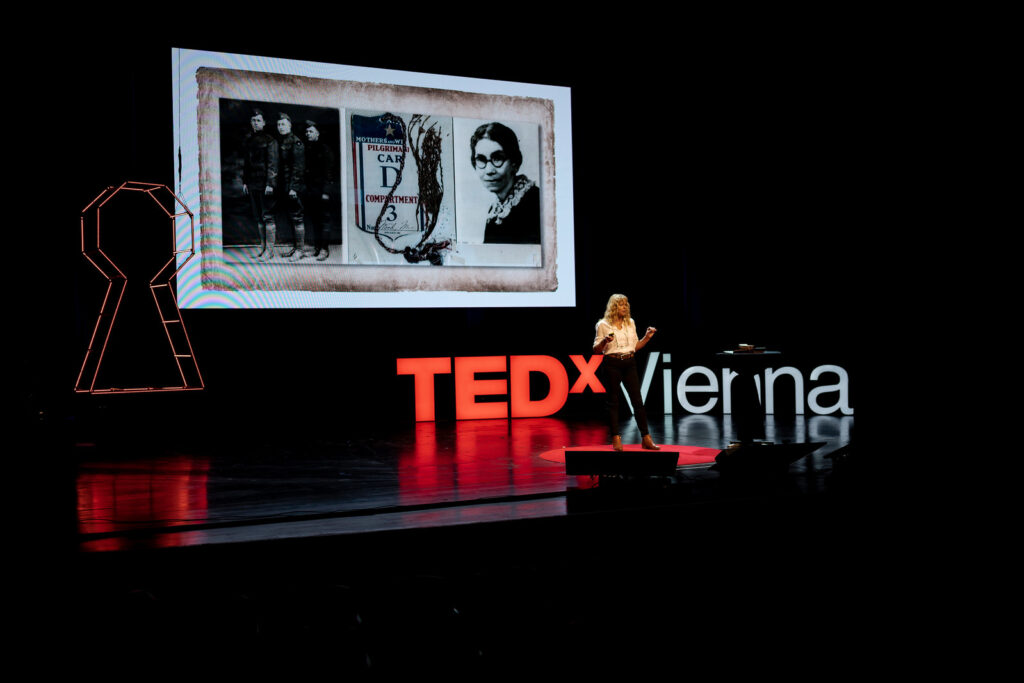
“Diary entries at the very moment of conception – that is real life as real as the author sees it at that point in time”
Sally MacNamara
History is not only important to know where we come from, but also to understand a little about people who are different from us and appreciate their different cultures, to expand our horizons, to identify with them, and create invaluable connections. It brings us closer to understanding the reasons for many past actions and promotes compassion and decision-making. We have the opportunity to expand our horizons, almost without moving through the history recorded in books, films, and art, and it is our choice to seize this opportunity and make it our own, to enjoy all its benefits. “So what I do think everybody needs to keep a diary, oh my goodness yes, not only to put your feelings and your thoughts from your heart into those pages but also for the sake of history and the sake of your family because your life is important, your untold story is important. “ Sally MacNamara.
Watch Sally’s MacNamara’s talk “ What I’ve learned from reading over 10000 diaries”.

